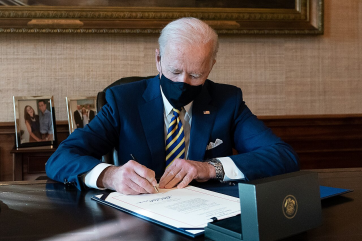New research suggests that young veterans have a higher risk of developing obstructive sleep apnea.
Researchers found that, for veterans, having a higher risk of sleep apnea increased with increasing severity of post-traumatic stress disorder (PTSD) symptoms.
Obstructive sleep apnea is a common sleep disease afflicting at least 25 million adults in the United States; warning signs include snoring and choking, gasping or silent breathing pauses during sleep.
For the study, researchers collected and analyzed data from nearly 200 Iraq and Afghanistan veterans who visited a veteran affairs outpatient PTSD clinic for evaluation.
Their findings revealed that 69.2 percent of participants had a high risk for sleep apnea, and this risk increased with PTSD symptom severity. Every clinically significant increase in PTSD symptom severity was associated with a 40 percent increase in the probability of screening as high risk for sleep apnea.
"The implication is that veterans who come to PTSD treatment, even younger veterans, should be screened for obstructive sleep apnea so that they have the opportunity to be diagnosed and treated," Sonya Norman, co-principal investigator of the study, said in a statement. "This is critical information because sleep apnea is a risk factor for a long list of health problems such as hypertension, cardiovascular disease and diabetes, and psychological problems including depression, worsening PTSD and anxiety."
The findings are detailed in the Journal of Clinical Sleep Medicine.








